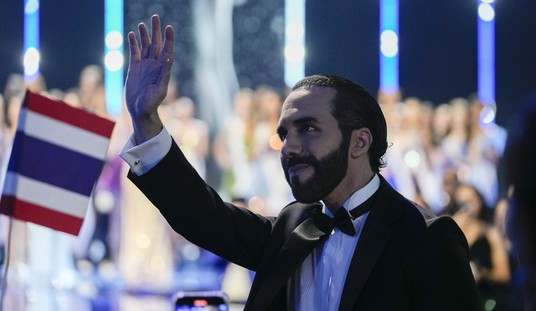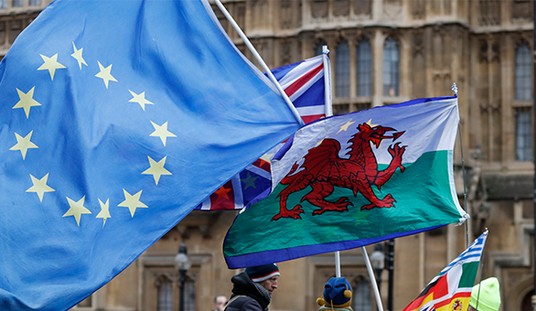That may be one reason why Claire McCaskill will pack up her Senate office over the next few weeks, but it’s not the only one — if in fact it applies at all. In an interview with NPR published today, McCaskill laments that moderates no longer get support from Democratic interest groups pushing for full commitment to a militant progressive agenda. The result, McCaskill argues, is a party that looks down its nose at anyone outside of the urban-academic bubble:
In an interview with Morning Edition host Rachel Martin, McCaskill characterized her loss as a “failure” of the Democratic Party “to gain enough trust with rural Americans,” and she predicted her party will struggle to win other seats as long as President Trump remains in office.
“This demand for purity, this looking down your nose at people who want to compromise, is a recipe for disaster for the Democrats,” she said Thursday in her Capitol Hill office. “Will we ever get to a majority in the Senate again, much less to 60, if we do not have some moderates in our party?”
Isn’t there an inherent contradiction in this complaint? If the issue is a lack of support from national Democrats, that shouldn’t matter as long as McCaskill’s responsive to her own constituents’ needs and policies in Missouri. In fact, any griping from progressive action groups would highlight McCaskill’s supposed moderation, which should make it easier for McCaskill to appeal to those rural voters that Democrats have snubbed.
Maybe McCaskill’s complaining about a lack of campaign support. That doesn’t appear to be why she lost, however. Open Secrets has the breakdown of campaign fundraising and spending in the Missouri Senate race, and McCaskill ended up far ahead of Josh Hawley as of the most recent FEC reports from mid-October. McCaskill raised almost $35 million to Hawley’s $10 million, and outspent him almost 5:1 — $33 million to $7.3 million. McCaskill nearly doubled her fundraising total from the 2012 cycle when she beat disastrous Republican nominee Todd Akin.
The data also shows that McCaskill got plenty of support from progressive groups and interests. The biggest outside contributor in the race was the progressive abortion-on-demand group Emily’s List, which chipped in $632,000 for McCaskill. Lawyers and law firms kicked in $5 million, with “Democratic/liberal” groups and individuals (presumably including the funds from Emily’s List) right behind at $4.7 million.
Even while getting hammered by outside-group spending, McCaskill still had an advantage. Outside groups spent $10 million more against McCaskill than they did against Hawley, but they also spent more than three times as much supporting McCaskill than Hawley, too. Chuck Schumer’s Senate Majority PAC spent $21 million in Missouri, slightly edging Mitch McConnell’s Senate Leadership Fund’s $20.7 million spend. It’s worth noting too that progressive groups Women Vote! and Priorities USA Action spent a combined $8.8 million in Missouri on McCaskill’s behalf, far outpacing the NRA’s $1.3 million for Hawley. Whatever happened in Missouri, it’s clearly not because progressives were undermining McCaskill..
Maybe the real issue for McCaskill isn’t the “purity campaign,” but her posturing as a moderate in the first place. When the chips are down, McCaskill has proven a very reliable vote for Chuck Schumer and other progressives. For instance, McCaskill voted against both Brett Kavanaugh and Neil Gorsuch for confirmation to the Supreme Court, a point not lost on Missouri’s voters thanks to Josh Hawley’s focus on those votes. A month ago, National Review noted that McCaskill also voted against several of Trump’s Cabinet appointments, and voted against Trump 55% of the time in the past two years. Nor did this start with Trump; a review of Senate votes by the Lugar Center for 2016 ranked Claire McCaskill 26th in bipartisanship, far behind her fellow Missouri Senator, Roy Blunt (#8) during Barack Obama’s final year in office. For 2017, facing a tough re-election bid, McCaskill only moved up five spots to 21st, still ten slots behind Blunt, who now had to vote against his own party’s president.
All this doesn’t mean that McCaskill’s observation about the Democratic Party is without merit. It does strongly suggest that it’s not why she lost. Had she been more moderate herself and less likely to simply fall in line behind Schumer, she might have survived in the same way Joe Manchin eventually did in West Virginia. McCaskill isn’t the solution – she was part of the problem.
By the way, Republicans shouldn’t gloat too much about this, because they’re having a similar problem everywhere else. Mia Love pointed it out this week, and as I argue in my column at The Week, it’s going to start costing them dearly.








Join the conversation as a VIP Member